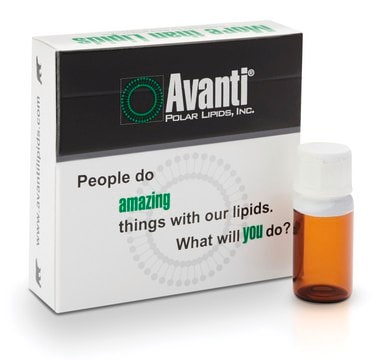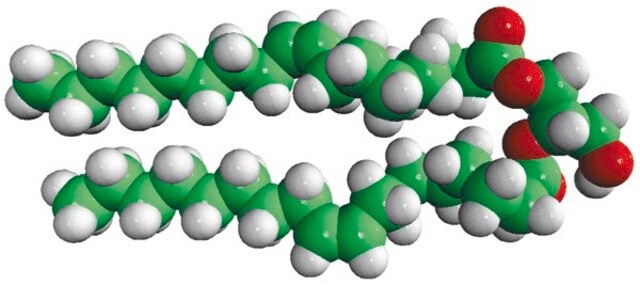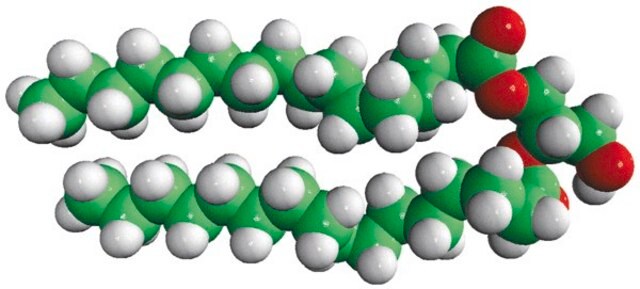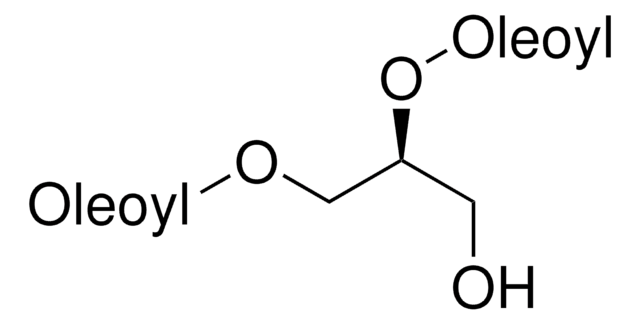800811O
Avanti
18:1 DG
Avanti Research™ - A Croda Brand
Synonym(s):
1-2-di-(9Z-octadecenoyl)-sn-glycerol; DG(18:1(9Z)/18:1(9Z)/0:0); DOG
About This Item
Recommended Products
description
1-2-dioleoyl-sn-glycerol, neat oil
Assay
>99% (TLC)
form
liquid
packaging
pkg of 1 × 10 mg (with screw cap (800811O-10mg))
pkg of 2 × 100 mg (with screw cap (800811O-200mg))
pkg of 5 × 100 mg (with screw cap 800811O-500mg)
pkg of 1 × 25 mg (with screw cap (800811O-25mg))
manufacturer/tradename
Avanti Research™ - A Croda Brand
lipid type
neutral glycerides
neutral lipids
shipped in
dry ice
storage temp.
−20°C
SMILES string
O([C@H](COC(=O)CCCCCCC\C=C\CCCCCCCC)CO)C(=O)CCCCCCC\C=C/CCCCCCCC
InChI
1S/C39H72O5/c1-3-5-7-9-11-13-15-17-19-21-23-25-27-29-31-33-38(41)43-36-37(35-40)44-39(42)34-32-30-28-26-24-22-20-18-16-14-12-10-8-6-4-2/h17-20,37,40H,3-16,21-36H2,1-2H3/b19-17+,20-18-/t37-/m0/s1
InChI key
AFSHUZFNMVJNKX-CSWDEDFYSA-N
General description
Application
Packaging
Storage and Stability
Other Notes
Dry samples of diacylglycerol in chloroform, using a stream of nitrogen. Dissolve the residue in an appropriate volume of ethanol or DMSO, then dilute to the desired aqueous medium.
Most biological responses saturate at 20 to 250 μM sn-1,2-dioctanoylglycerol. Only sn-1,2 isomers appear to be active.
Legal Information
Storage Class Code
10 - Combustible liquids
WGK
WGK 1
Flash Point(F)
Not applicable
Flash Point(C)
Not applicable
Choose from one of the most recent versions:
Certificates of Analysis (COA)
It looks like we've run into a problem, but you can still download Certificates of Analysis from our Documents section.
If you need assistance, please contact Customer Support.
Already Own This Product?
Find documentation for the products that you have recently purchased in the Document Library.
Customers Also Viewed
Our team of scientists has experience in all areas of research including Life Science, Material Science, Chemical Synthesis, Chromatography, Analytical and many others.
Contact Technical Service










